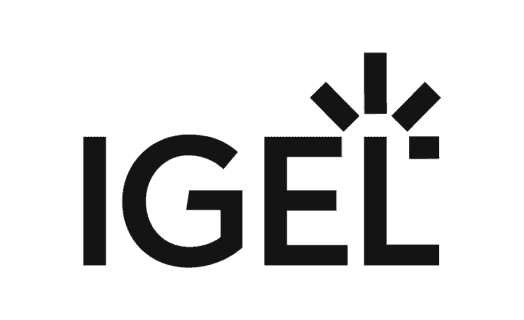IGEL Secure Endpoint OS
for Now and Next
IGEL is a transformative secure endpoint OS designed for SaaS, DaaS, VDI and secure browser environments. IGEL significantly reduces endpoint TCO and your endpoint attack surface.


Reliable service 24 hours a day, 365 days a year is what the automotive industry expects from companies providing fleet management, emergency, roadside and accident assistance services. To meet these demands, call center agents need systems that are stable, meet the highest security standards, and are easy to use. After all, any delay in communication or access to data can have serious consequences.
A global mobility services provider faced the challenge of adapting its endpoint infrastructure to an increasingly hybrid work environment. Its existing Citrix-based solution was designed primarily for fixed office environments. As a result, the support burden grew rapidly as employees began working from home and attempting to use their endpoints there. Varying hardware configurations, unreliable Internet connections, and a large number of peripheral devices made troubleshooting difficult. Call quality was a recurring issue, with dropouts and delays negatively affecting agent response times and customer experience.
In addition, regional differences in data protection, compliance and IT requirements resulted in a heterogeneous system landscape that was difficult to maintain. A standardized and centrally manageable solution was urgently needed – flexible enough for global use, yet adaptable to local requirements. The goal was to create a stable, secure and user-friendly platform that would ensure the smooth operation of the endpoint infrastructure.
“The biggest advantage is that we can manage all the endpoints centrally via the IGEL Universal Management Suite. This allows us to complete all administrative tasks quickly and with minimal personnel costs.”
Maxim-Mihai Brumm, Global Service Owner – User Support Services

After a thorough market analysis, four endpoint management vendors were shortlisted. All solutions were tested in a Proof of Concept (PoC) under realistic conditions. In the end, IGEL came out on top with its IGEL OS and IGEL Universal Management Suite (UMS). IGEL’s robust OS architecture, centralized endpoint management, and support for existing hardware proved decisive. “With IGEL, we have been able to create a standards-based environment that works globally and still meets local requirements,” said Maxim-Mihai Brumm, Global Service Owner – User Support Services.
The IGEL Preventative Security Model™, on which IGEL OS is based, played a key role in the decision. This security model combines a read-only, modular Linux operating system with a trusted application platform and end-to-end encryption and ensures that no data is stored locally. In this way, the company reduces the potential attack surface at the endpoint and closes specific vulnerabilities that are frequently exploited by malware and cyber criminals.
The IGEL OS rollout was completed in a very short time. The service provider migrated all 1,600 endpoints in its global offices to the secure endpoint operating system. At the same time, the free Linphone IP telephony software was installed on the IGEL endpoints. Since then, calls are no longer routed through the Citrix environment, but directly over the Internet. As a result, call quality has improved significantly, and the connection problems that used to occur regularly are now a thing of the past.
“Overall, we have been able to reduce support calls by over 30 percent by switching to IGEL. That saves us time and money.”
Maxim-Mihai Brumm, Global Service Owner – User Support Services
With the new solution, the company has created a hybrid digital work environment where employees can move flexibly between the office and home office: Another benefit is centralized management. Updates can now be installed on all devices in all countries in no time at all. Using the IGEL UMS, IT administrators can organize individual endpoints into groups and create profiles with individual settings for security, user interface and applications. This makes it easier to roll out country- or group-specific configurations.
The introduction of IGEL has quickly produced visible results. New endpoints in remote locations are now set up over the network with virtually no manual intervention. On average, employees are up and running in just seven minutes. Consistent standards for endpoint configuration have also reduced the number of calls to the helpdesk. The company’s IT specialists now handle 30 to 40% fewer support tickets. With integrated session shadowing, they can quickly resolve user issues remotely. All of this significantly reduces the IT department’s workload.
With IGEL, the service provider has not only improved operational efficiency but also reduced hardware and software costs. IGEL OS has enabled savings of around 30 percent compared to the previous Windows environment. The main reasons for this are lower licensing costs and the ability to extend the life of existing hardware.
“With IGEL OS, we now have an endpoint operating system that meets all our requirements in terms of security, scalability and ease of administration,” concludes Maxim-Mihai Brumm. “The smooth operation of the systems also increases the productivity of our employees, as they can now fully concentrate on taking care of the drivers.”
“We used to have to tackle each problem individually because the devices and configurations were so different. Now everyone is using the same standardized setup. This means that issues can be identified and resolved more quickly.”
Maxim-Mihai Brumm, Global Service Owner – User Support Services

In the future, the company plans to migrate to IGEL OS 12 and use IGEL Cloud Gateway. The new operating system allows for security updates to be installed with zero downtime – and users can continue to use their applications and services without interruption during the installation. IGEL Cloud Gateway also simplifies the management of remote endpoints by eliminating the need for a VPN connection. Pilot deployments are currently underway, with initial feedback confirming the expected benefits.